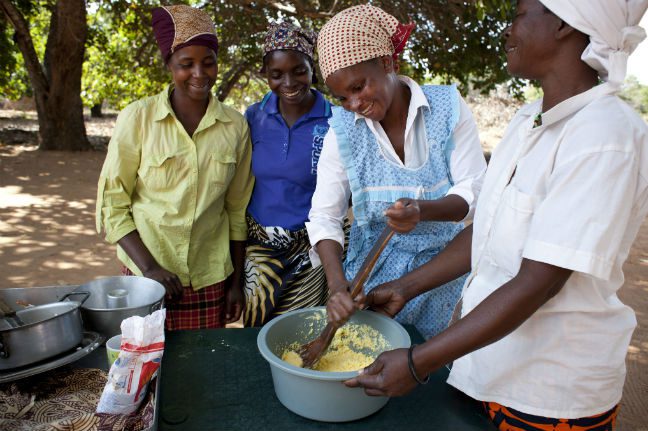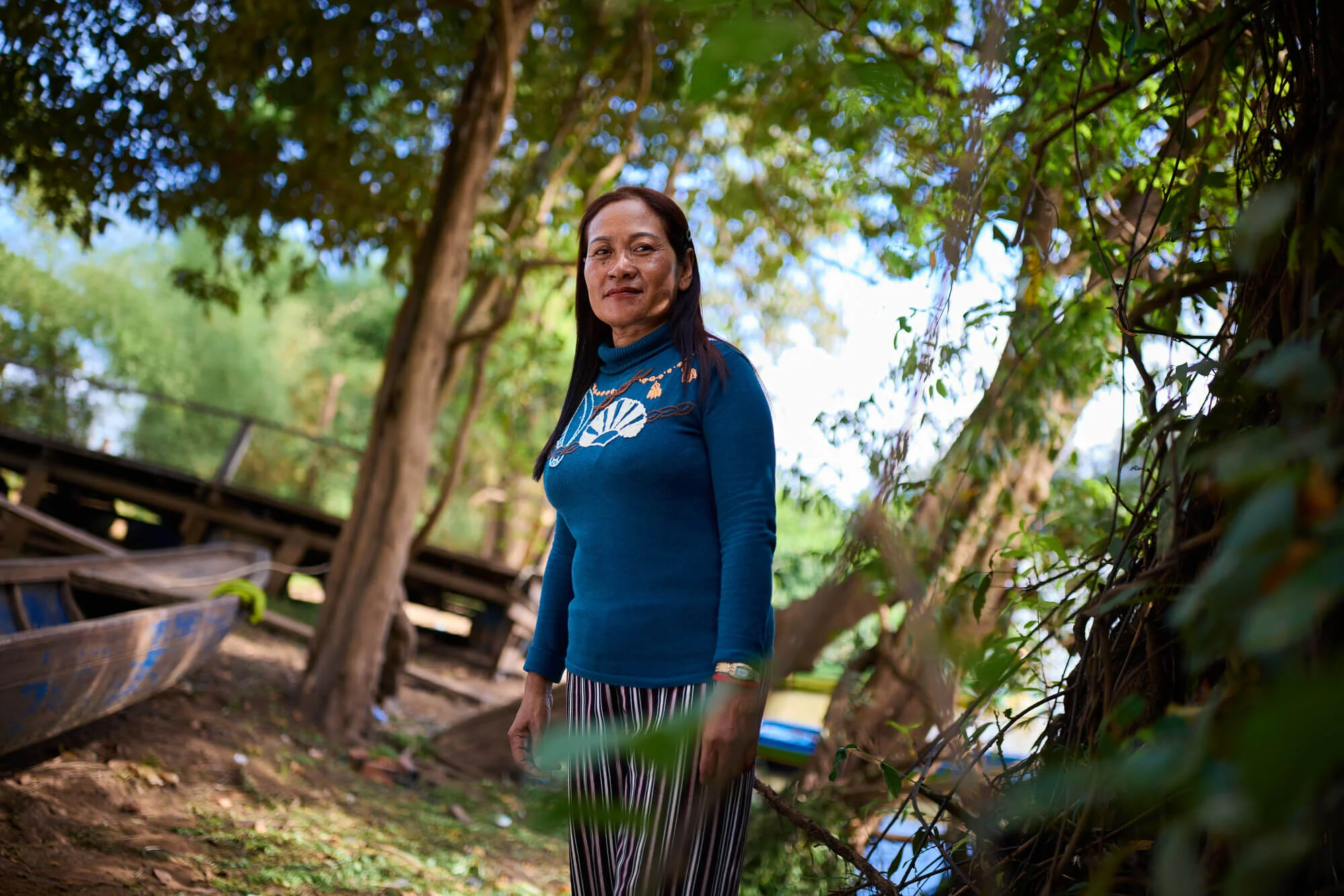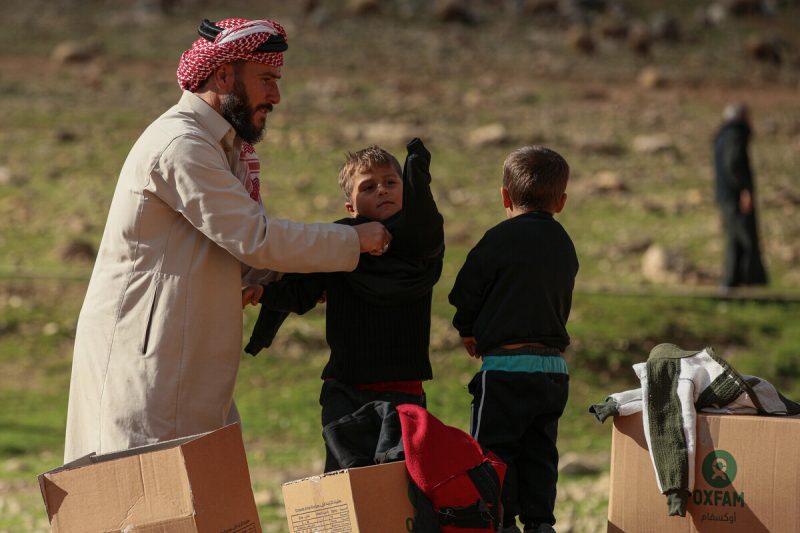Anariata, 28, lives in Mozambique, where regular drought can mean life-threatening hunger. Despite the dry, desert-like conditions, Anariata has learned how to produce and sell food for improved nutrition and valuable income — and is now teaching others how to do the same.
Standing at a makeshift table in the local market, Anariata, is tall and proud. Her hands are shaking and her voice wavers slightly as she announces to the crowd why she and the other three women are there. They’ve come to sell cakes, bread, and jam — freshly-made and just out of the oven.
Anariata is a trainer in her community. She teaches other women how to make the most of the produce that grow in and around their homes to improve their families’ diet. Food such as cassava bread, cassava and coconut cake and jam is not only added nutrition; it’s also an alternative source of income if they wish to sell some at the local market.
“In the dry season, sometimes we go without food, so Malhalhe (an Oxfam partner) have taught us to make the most of what we have around us to stop families going hungry,” says Anariata.
In the picture above, Anariata has just taught three women in her community how to make bread, jam and cake for the first time. One day, the hope is that the women will be a permanent fixture at the markets, earning an income from the products they’ve learned to make.
“Now that I can make these products I can have a better life in my home. And if we eventually start selling these products I can have an even better life. We can sell the cake for 10 meticas a slice and the bread for 3 meticas per roll. I want to keep learning new things to make my life better.”
Oxfam’s project in Mozambique helps to provide clean water, improve farming techniques (catered especially to the dry conditions), establish sustainable livelihoods, and ultimately, end hunger in the region. For women like Anariata, it’s a vital learning process that will help stop hunger from continuing into the next generation.
“We must make the most of the resources that have been given to us and use our strength to learn together. If we learn and grow the donors will continue to help us through the difficulties of the dry season. Here at Malhalhe we come together like a family to learn and grow.”
The following recipe is a special treat in Mozambique. Make it with love this Christmas.
Cassava and Coconut Cake:
Ingredients
- 4 eggs
- 2 cups of coconut
- 2 large spoons of butter
- ½ cup of sugar
- 2 cups of grated cassava*
- Zest of 1 lemon
- 1 cup of water
Recipe
- Mix the eggs, coconut, sugar and butter together until creamy and white in colour.
- Fold in two cups of grated cassava.
- Add the lemon zest
- Gradually add water a little at a time
- Add a little flour to bond the mixture
- Stir in the baking powder
- Line cake tin with butter
- Transfer mixture to cake tin to bake for 45 minutes
- Serve!
* Be careful if trying at home. Eating unprocessed cassava can make you ill if not treated properly first. Processed cassava can be found at specialist grocers.
By introducing training and skills to people like Anariata, you could help create a future where everyone has enough to eat.



